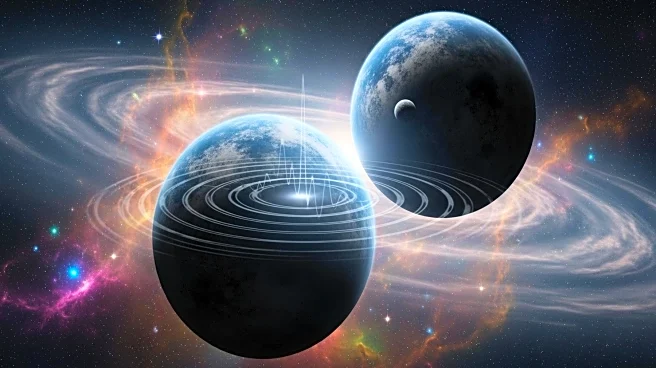What is the story about?
What's Happening?
Gravitational waves, first confirmed on September 14, 2015, by the LIGO laser interferometer, have become a pivotal discovery in modern astronomy. The event, designated GW150914, marked the first direct observation of these waves, which are ripples in spacetime caused by massive cosmic events like black hole mergers. Since then, gravitational wave detection has become routine, with numerous discoveries enhancing our understanding of the universe. These waves, predicted by Einstein's theory of relativity, provide insights into phenomena that are otherwise invisible, such as the merging of neutron stars and black holes.
Why It's Important?
The detection of gravitational waves has revolutionized astronomy by opening a new observational window into the universe. This advancement allows scientists to study cosmic events that emit little to no electromagnetic radiation, offering a deeper understanding of the universe's structure and the fundamental laws of physics. The ability to observe these waves provides critical data on the behavior of massive objects and the dynamics of spacetime, potentially leading to breakthroughs in theoretical physics and cosmology. The ongoing research and discoveries in this field continue to challenge and refine existing scientific theories.
Beyond the Headlines
Gravitational wave astronomy represents a significant shift in how we explore the universe, moving beyond traditional electromagnetic observations. This field's development highlights the importance of interdisciplinary collaboration and technological innovation in advancing scientific knowledge. The ethical and philosophical implications of understanding the universe's fundamental nature also provoke discussions about humanity's place in the cosmos. As technology improves, the potential for discovering new phenomena and refining our understanding of gravity and spacetime remains vast, promising exciting developments in the years to come.
















